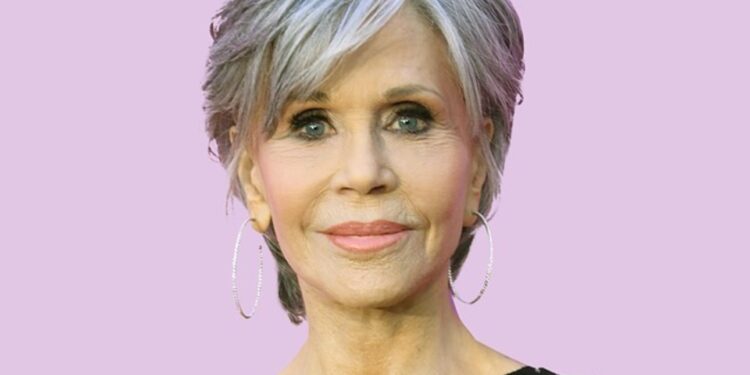Jane Fonda, born on December 21, 1937, in New York City, is a living legend known for her illustrious career in film, her tireless activism, and her unwavering resilience in the face of personal and professional challenges. Over the span of six decades, Fonda has not only left an indelible mark on the entertainment industry but has also become a powerful voice for social and political change.
Fonda’s journey in the film industry began in the early 1960s, where she quickly gained recognition for her performances in films like “Tall Story” (1960) and “Period of Adjustment” (1962). However, it was her breakout role in the 1968 film “Barbarella” that propelled her to international stardom. Fonda’s versatility as an actress was evident as she seamlessly transitioned between genres, earning critical acclaim for her work in both dramas and comedies.
One of the defining moments in Jane Fonda’s career came with her portrayal of Bree Daniels in the 1971 film “Klute,” for which she won the Academy Award for Best Actress. This marked the beginning of a string of successful films, including “Coming Home” (1978), for which she received her second Academy Award, solidifying her status as one of Hollywood’s leading actresses.
Beyond her acting prowess, Fonda’s impact extends far beyond the silver screen. Throughout her life, she has been an outspoken advocate for various social and political causes. In the 1970s, Fonda became a prominent figure in the anti-Vietnam War movement, using her celebrity platform to raise awareness and funds for peace initiatives. Her controversial visit to North Vietnam in 1972 drew both admiration and criticism, but it exemplified her commitment to activism and the courage to speak out against injustice.
Fonda’s activism has evolved over the years, encompassing a wide range of issues, including women’s rights, environmentalism, and anti-war efforts. In the 1980s, she was a vocal supporter of the feminist movement, co-founding the Women’s Media Center to promote gender equality in media. Her involvement in causes such as the civil rights movement, Native American rights, and opposition to the Iraq War further solidifies her legacy as a committed and principled activist.
Despite her significant contributions to both film and activism, Jane Fonda’s life has not been without challenges. In the 1980s, she faced personal struggles, including a highly publicized divorce from media mogul Ted Turner. Fonda’s resilience shone through as she navigated these difficulties and emerged stronger, focusing on personal growth and continued activism.
In recent years, Fonda has experienced a career resurgence, earning critical acclaim for her role in the television series “Grace and Frankie.” This later-in-life success speaks to her enduring talent and the evolving landscape of opportunities for women in the entertainment industry.
As Jane Fonda has aged, her commitment to activism has not waned. In 2019, she gained international attention for her participation in climate change protests in Washington, D.C., where she was arrested multiple times for civil disobedience. Fonda’s dedication to environmental causes underscores her belief in using her influence to address pressing global issues.
Jane Fonda’s life and career are a testament to the power of resilience, reinvention, and a steadfast commitment to social justice. Her impact extends far beyond the entertainment industry, making her a revered figure in the realms of activism and advocacy. As Fonda continues to inspire and challenge societal norms, her legacy remains an enduring symbol of the possibilities that arise when passion, talent, and a sense of responsibility converge in the pursuit of a better world.





Recent Comments